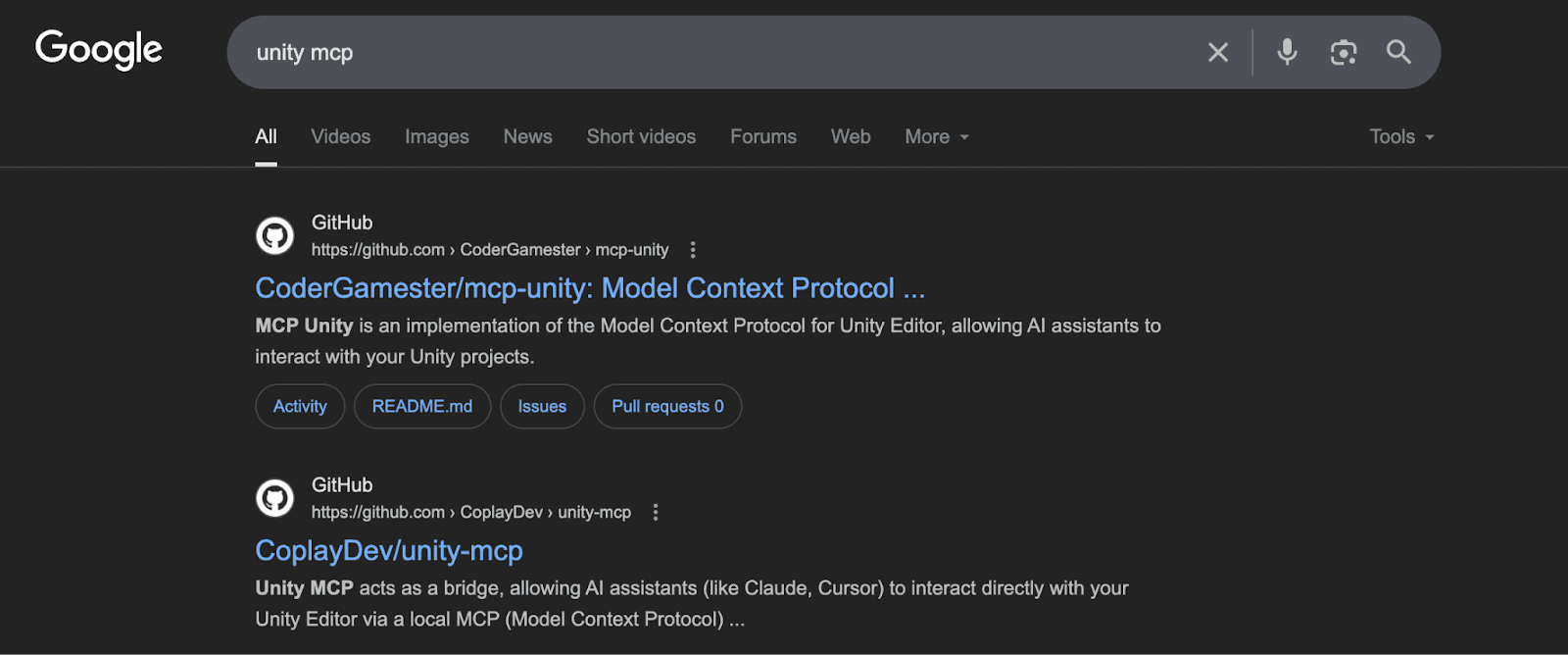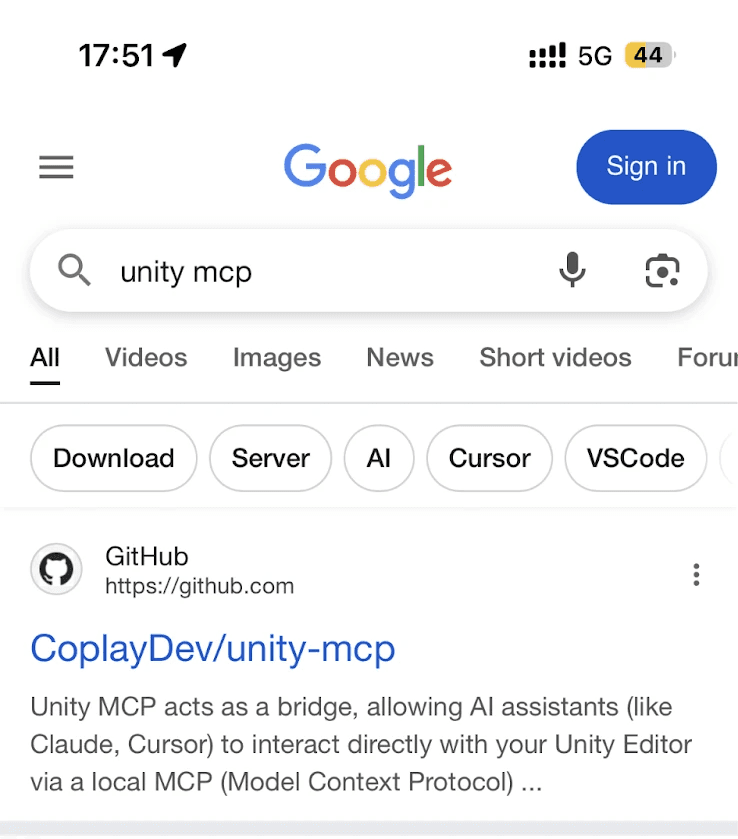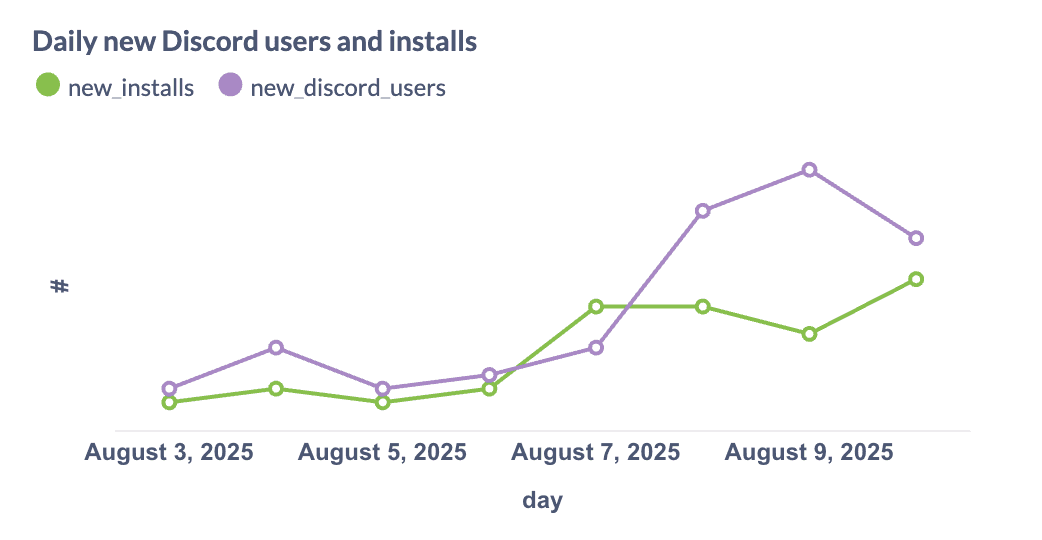Our tiny startup recently acquired the most popular open-source Unity MCP repo on GitHub, and things didn't quite go as planned. Here are the lessons we learned for anyone considering buying an open source repo.
Why we bought the repo
First, we like open source and want Unity MCP to stay relevant and open source indefinitely.
Second, there's distribution: being the name behind the project. If you don't want to set up MCP yourself, you can one-click install Coplay for a premium experience.
When the original creator of Unity MCP, Justin Barnett, agreed to sell - and to join our team - we were delighted.
For all of us on the team, this was our first repo acquisition. We did a bunch of research on mechanics and ROI - and still learned a few things the hard way:
1. SEO of the repo gets reset
In summary the Google SEO gets trashed when you change the owner of a repo.
After the purchase, ownership moved to our Coplay organization on GitHub. The repo URL changed from
https://github.com/justinpbarnett/unity-mcp
to
https://github.com/CoplayDev/unity-mcp
The old URL redirects to the new one, so in theory existing posts/backlinks keep working. We also agreed the original creator wouldn't reuse the "unity-mcp" repo name under his GitHub profile, which could break redirects. Stars, watchers, and forks were preserved.
For the first few days, things looked fine. Pre-acquisition, searching "Unity MCP" put the repo at the top (it had ~3k stars). Two days after the move, "unity mcp github" showed it at #4 - odd, but we shrugged. The next day, one of my co-founders couldn't find it at all. Same on our side: the GitHub repo with ~3k stars had vanished from Google.
2. Media outlets don't care about OSS repo acquisitions (and probably nobody else does either)
Because it felt big to our tiny team, we prepped a press release and pitched it under embargo to several outlets (TechCrunch, SiliconAngle, TechForge, VentureBeat, etc.).
None seemed interested.
PocketGamer eventually agreed to cover it, then went quiet when we tried to confirm timing. Typically they'll share the post-embargo publish time so you can coordinate your own push. We also asked for a correction (3k+ weekly game-dev features, not 750+), but heard nothing.
Timeline recap: we started pitching on a Thursday with an embargo two weeks out. By the next Thursday, everyone had replied.
Two weeks later - on a Friday - I stumbled on PocketGamer's piece while Googling "unity mcp." It had gone live on Tuesday… We were three days late to our own news. We hadn't even updated the repo's README yet. Luckily, ownership was already transferred (originally, we'd planned to time it with the press). Their write-up was rough compared to our draft.
That scramble pushed our announcement to a Friday afternoon instead of a sane mid-week slot.
Lesson 3: don't post about your shit on a Friday afternoon.
It's possible that nobody cares when tiny companies acquire fairly popular OSS repos. Our social posts barely moved the needle.
| Social Post | # Likes or Upvotes |
|---|---|
| X | 15 |
| 87 | |
| r/SideProject | 5 |
| r/opensource | 2 |
| r/Unity3D | 0 |
| r/gamedev | 0 |
4. Get maintainer buy-in
One thing we did get right: maintainer buy-in. The repo had more than just the creator maintaining it, so we had real conversations and planning sessions with maintainers before making changes. We were transparent, kept them in the loop, and appreciated the support. There's nothing like healthy open-source camaraderie. (Special thanks to Shutong Wu and David Sarno.)
On the bright side
- SEO seems to be slowly working its way back to the top.


- Despite the marketing flop, buying the repo roughly tripled new Discord joins and doubled Coplay installs. The press release was on the 5th (no change), and the README update on the 8th coincides with the uptick.

You live and you learn. Instead of fancy stunts, we'll go back to what we do best: making the product better for users.